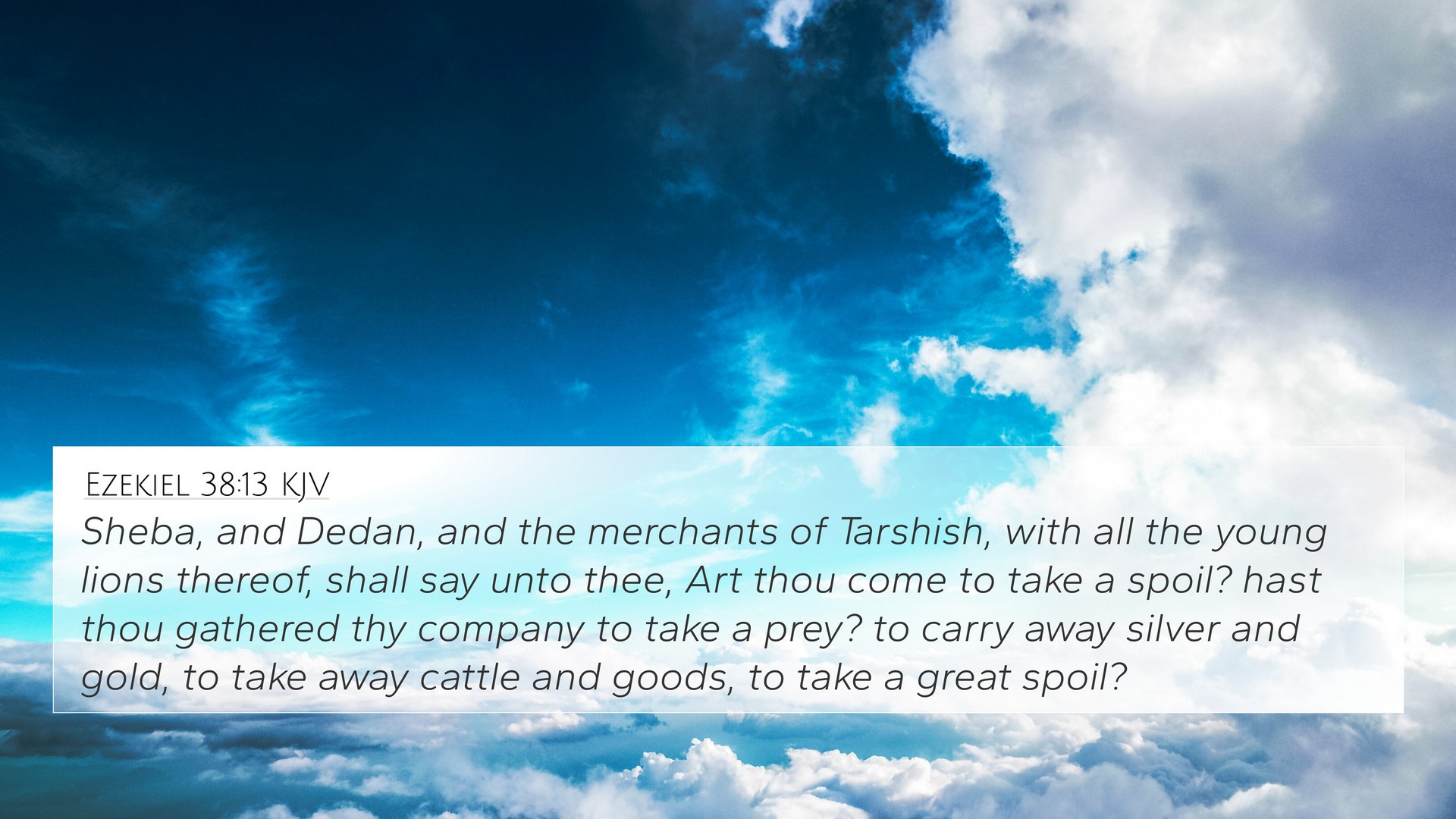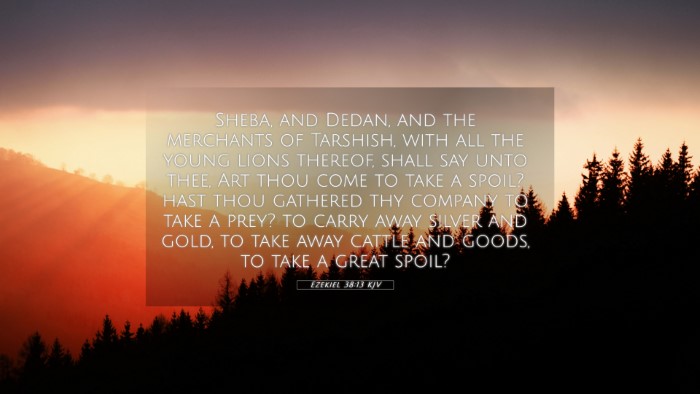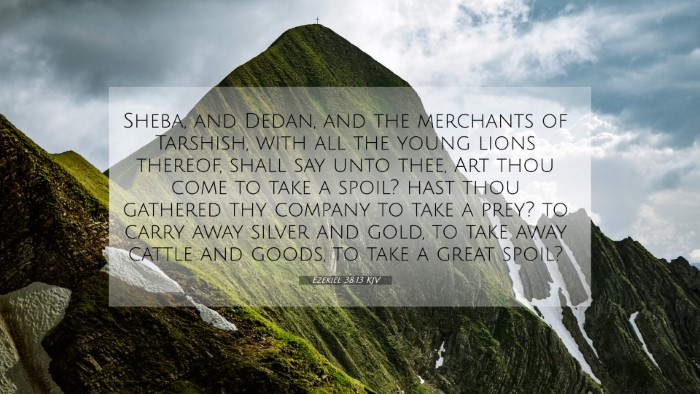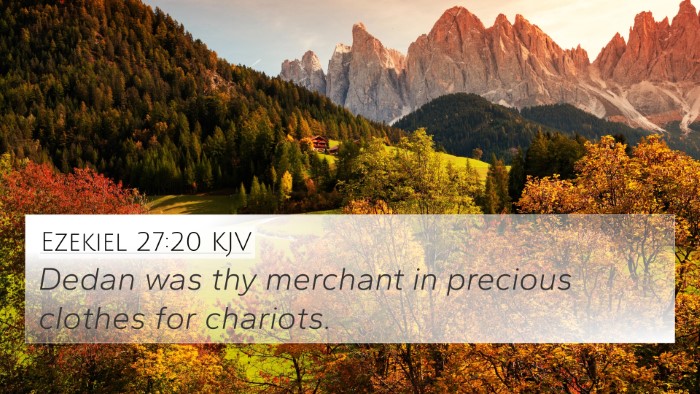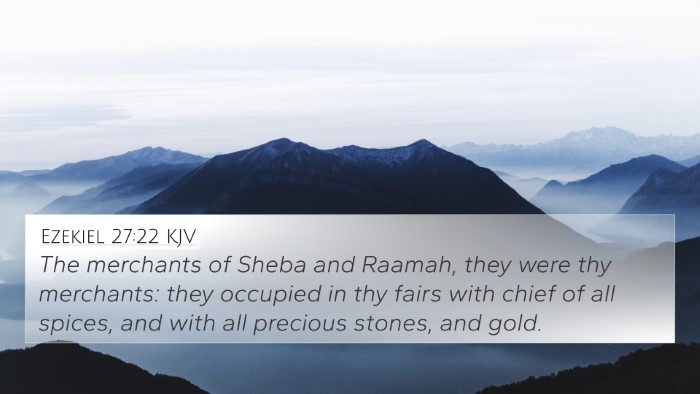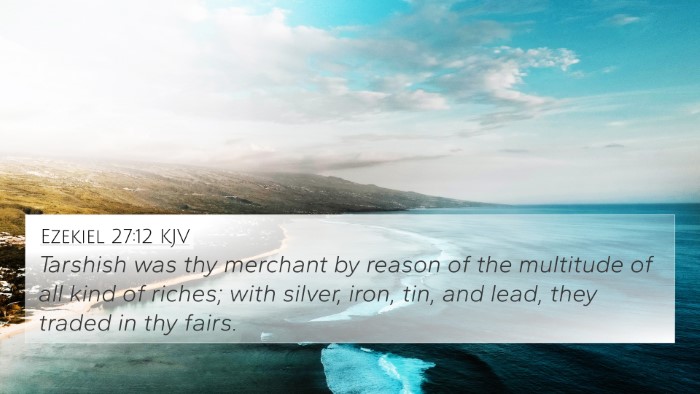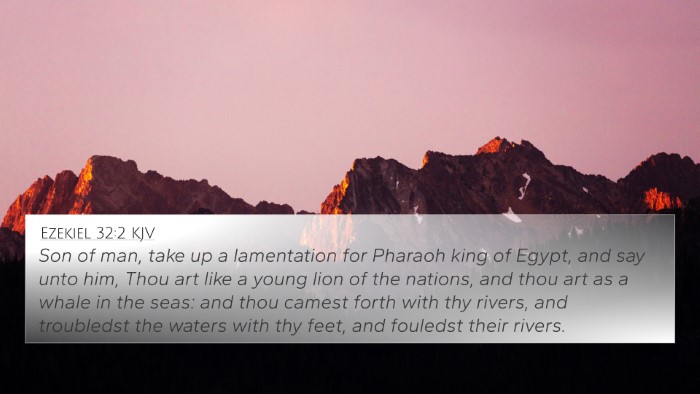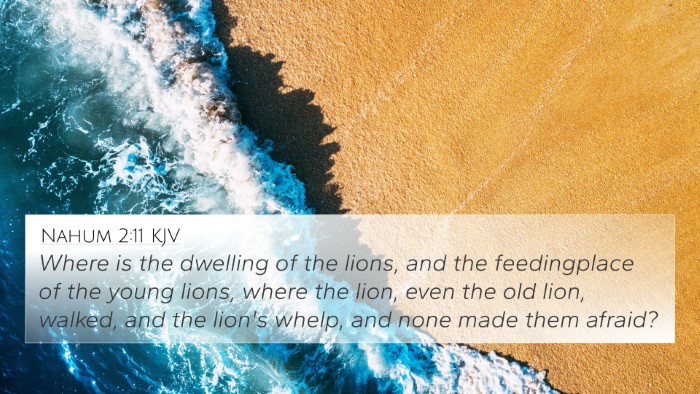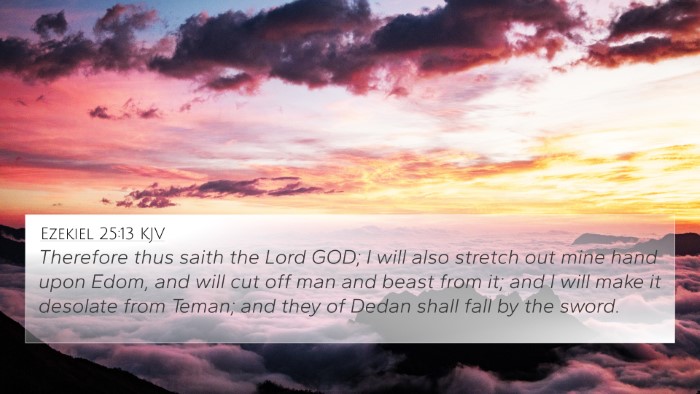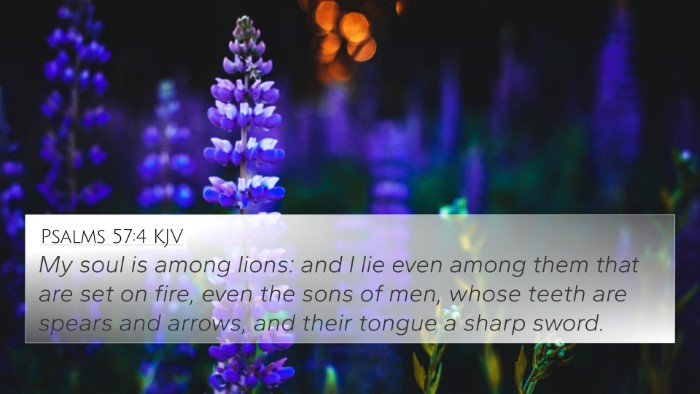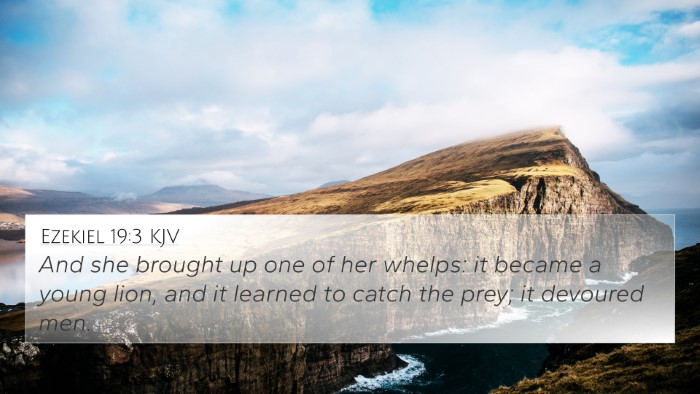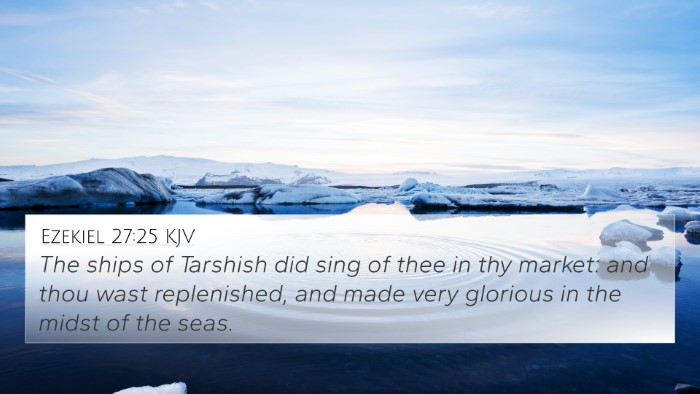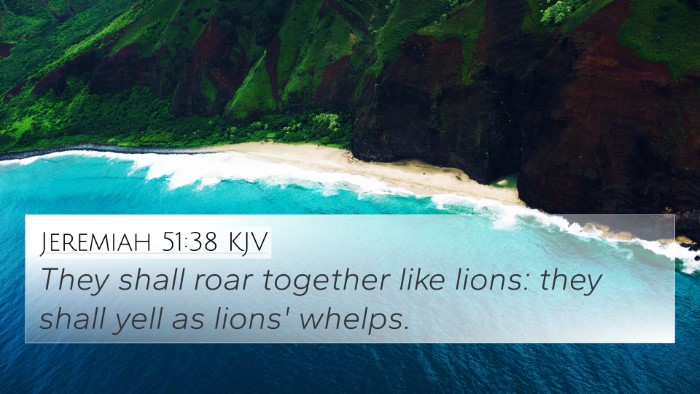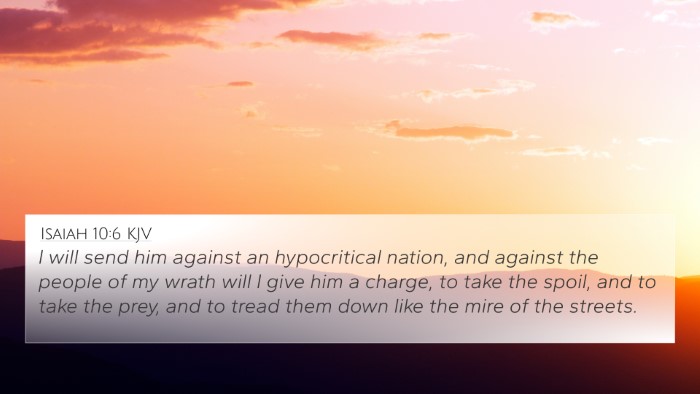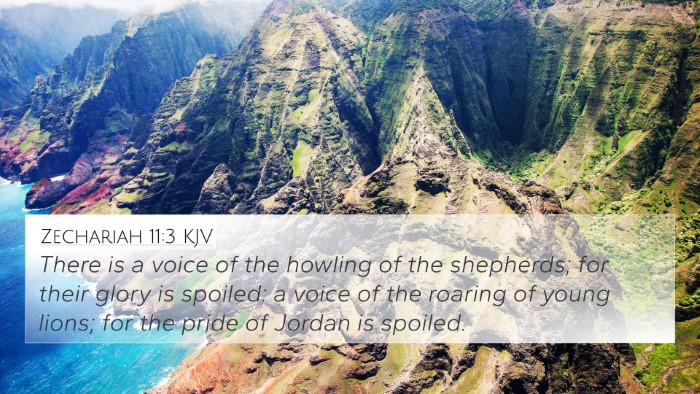Ezekiel 38:13 - Understanding the Verse
Ezekiel 38:13 states:
"Sheba, and Dedan, and the merchants of Tarshish, with all the young lions thereof, shall say unto thee, Art thou come to take a spoil? hast thou gathered thy company to take a prey? to carry away silver and gold, to take away cattle and goods, to take a great spoil?"
Verse Breakdown
This verse depicts a prophetic dialogue concerning a coalition of nations, particularly highlighting Sheba and Dedan, along with merchants of Tarshish and their young lions. The emphasis lies on their inquiry regarding the intentions of a coming aggressor, interpreted as a reference to Gog of Magog.
Commentary Insights
Several prominent biblical commentators provide insights into this verse.
-
Matthew Henry: Henry explains that Sheba and Dedan represent nations symbolizing commerce and trading, suggesting that they express concern over the spoil being gathered. Their query reveals a defensive position against the aggressor, illustrating the tension between nations.
-
Albert Barnes: Barnes emphasizes the geographical and political significance of these nations. He notes their attempts to restrain the expansion of Gog's dominion. Their questioning illustrates a reluctance to engage in conflict, pointing toward economic interests over military ones.
-
Adam Clarke: Clarke identifies the merchants of Tarshish as significant players in global trade during Ezekiel's time. He interprets their concern as foreseeing potential disruptions caused by Gog's military campaigns which would threaten commercial stability.
Thematic Connections
This verse resonates with broader themes within scripture, including:
- Divine Sovereignty: It emphasizes God's ultimate authority and control over the nations and their affairs.
- International Relations: The verse highlights how nations react to the actions of one another, depicting a world stage of conflict and negotiation.
- Prophecy and Fulfillment: This prophetic proclamation connects with the theme of eschatology, concerning the end times and the final conflict involving the nations.
Cross-Referencing Biblical Texts
To enrich the understanding of Ezekiel 38:13, we can explore several Bible verses that share parallels or thematic connections:
- Jeremiah 49:28-33: Discusses the destruction of Kedar and Hazor, related to prophetic judgments.
- Revelation 20:8: Mentions Gog and Magog in the context of the final battle against God’s people.
- Isaiah 60:6: Portrays nations bringing their wealth in the end times, similar to the merchants of Tarshish.
- Ezekiel 27:12: Details the trade and riches of Tyre, revealing the interconnectedness of trade and conflict.
- Matthew 24:7: Portrays national conflicts and disturbances as part of the signs of the end times.
- Daniel 11:44: Speaks about the reports of troubles from the east and north, echoing the tensions alluded to in Ezekiel.
- Zechariah 14:2: Discusses the gathering of nations against Jerusalem, related to alliances and conflicts.
Tools for Bible Cross-Referencing
To explore these connections further, consider utilizing the following tools:
- Bible Concordance: A useful resource for locating verses by keywords.
- Bible Cross-reference Guide: Facilitates the exploration of related scriptures.
- Bible Chain References: A methodical system for tracing theological concepts through the text.
- Bible Cross-reference System: Acts as a structured way to examine thematic links across different books.
Comparative Bible Verse Analysis
This verse highlights the importance of understanding prophetic literature in context. The interplay between international politics and divine prophecy reveals significant insights about the nature of God’s interaction with nations.
Moreover, examining the relationships between various biblical passages enhances our understanding of Ezekiel 38:13. By identifying connections between Old and New Testaments, we recognize how biblical themes develop throughout scripture.
User Intent: Finding Cross-references
Many seekers of biblical knowledge desire to uncover the interconnectedness within the Scriptures. Here are common queries that individuals might have:
- What verses are related to Ezekiel 38:13?
- Find cross-references for themes of prophecy.
- How do the concepts in this verse connect with New Testament revelations?
- Similarities between Ezekiel and Revelation regarding Gog and Magog.
- Bible verses that support the themes found in Ezekiel 38:13.
Conclusion
Understanding Ezekiel 38:13 within the broader context of scripture enhances its meaning. It reveals both immediate and eschatological concerns, highlighting the reaction of nations to divine fulfillment of prophecy and the intricate web of trade, conflict, and divine authority.
